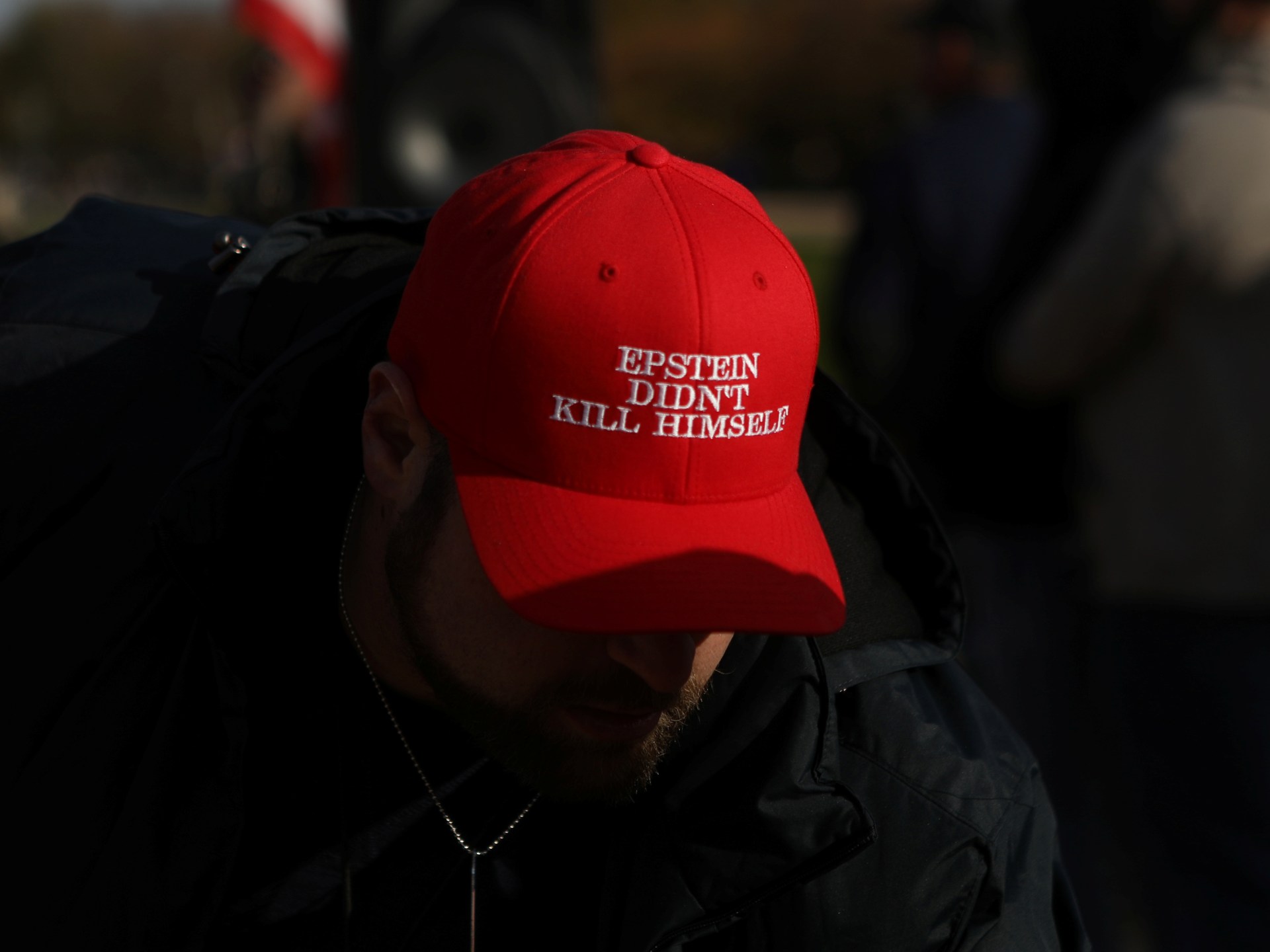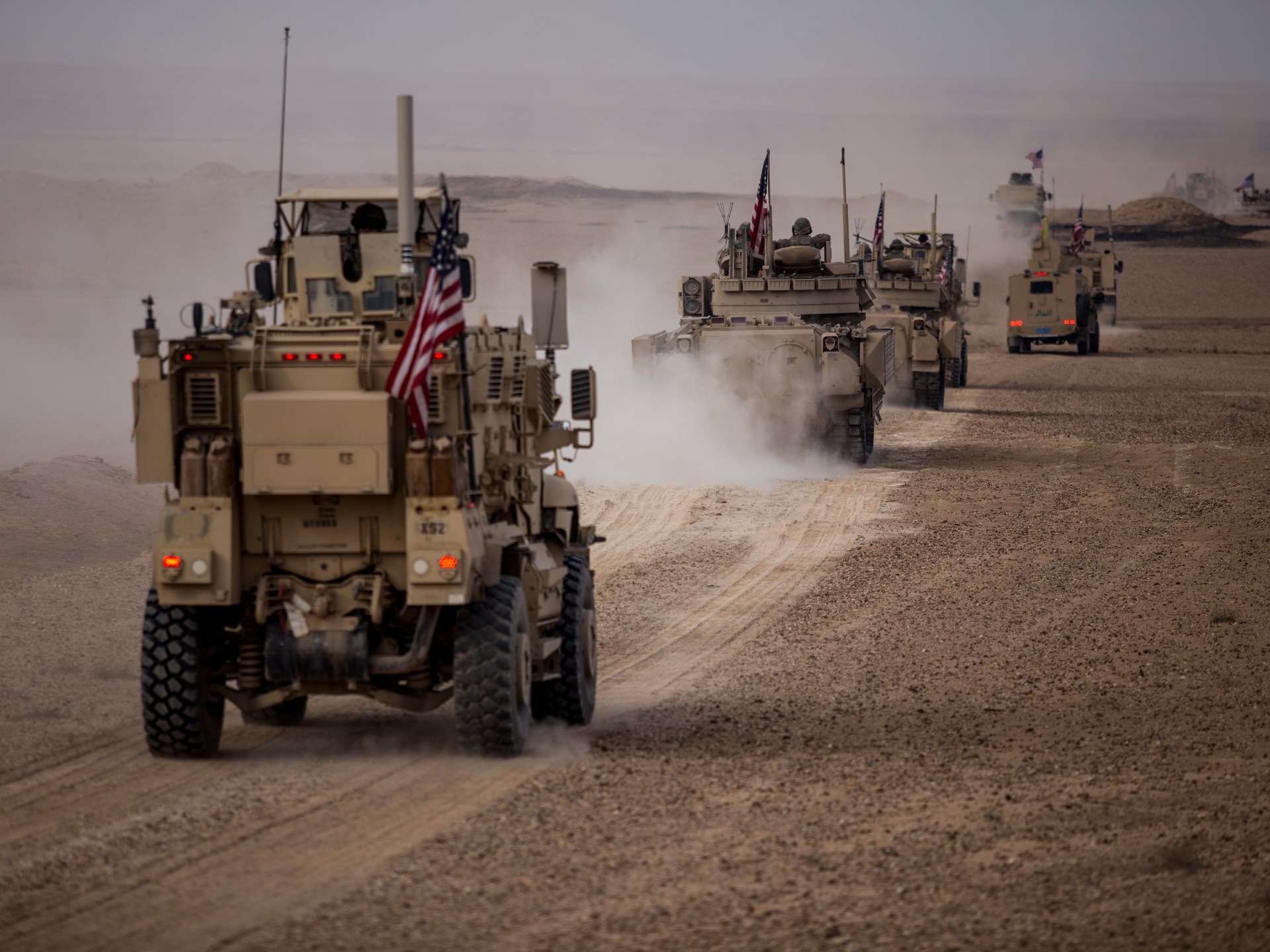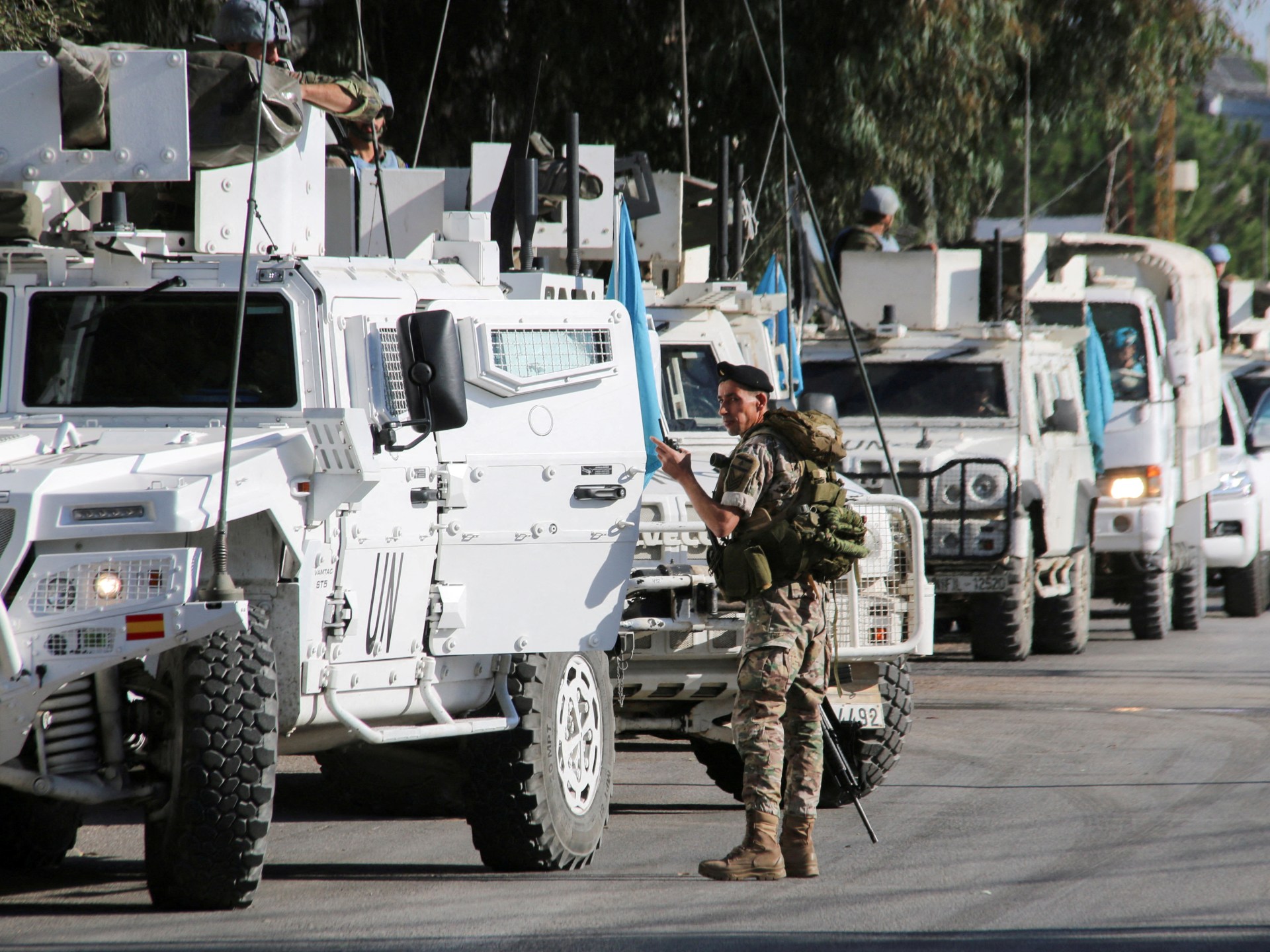Washington, DC – After taking the oath of office for his second term in January, United States President Donald Trump said he would push to “stop all wars” and leave a legacy of a “peacemaker and unifier”.
But six months in, missiles are flying across the Middle East after Israel attacked Iran, risking an all-out regional war that could drag US troops into the conflict.
The Israeli strikes on Iran, which Trump has all but explicitly endorsed, are now testing the president’s promise to be a harbinger of peace.
They are also dividing his base, with many right-wing politicians and commentators stressing that unconditional support for Israel is at odds with the “America First” platform on which Trump was elected.
“There is a very strong sense of betrayal and anger in many parts of the ‘America First’ base because they have truly turned against the idea of the US being involved in or supporting any such wars,” said Trita Parsi, executive vice president at the Quincy Institute, a US think tank that promotes diplomacy.
“They have largely turned sceptical of Israel, and they strongly believe that these types of wars are what cause Republican presidencies to become failures — and what causes their broader domestic agenda to be compromised.”
‘Drop Israel’
Several conservatives questioned the Israeli strikes on Friday, warning that the US must not be dragged into a war that does not serve its interests.
Influential conservative commentator Tucker Carlson — seen as a major figure in Trump’s Make America Great Again (MAGA) movement — said the US should not support the “war-hungry government” of Israeli Prime Minister Benjamin Netanyahu.
“If Israel wants to wage this war, it has every right to do so. It is a sovereign country, and it can do as it pleases. But not with America’s backing,” the Tucker Carlson Network morning newsletter read on Friday.
It added that a war with Iran could “fuel the next generation of terrorism” or lead to the killing of thousands of Americans in the name of a foreign agenda.
“It goes without saying that neither of those possibilities would be beneficial for the United States,” the newsletter said. “But there is another option: drop Israel. Let them fight their own wars.”
Republican Senator Rand Paul also cautioned against war with Iran and slammed hawkish neoconservatives in Washington.
“The American people overwhelming[ly] oppose our endless wars, and they voted that way when they voted for Donald Trump in 2024,” Paul wrote in a social media post.
“I urge President Trump to stay the course, keep putting America first, and to not join in any war between other countries.”
Right-wing Congresswoman Marjorie Taylor Greene also sent a message suggesting that she opposes the strikes. She has previously cautioned Trump against attacking Iran based on Israeli assertions that Tehran is about to acquire a nuclear weapon.
“I’m praying for peace. Peace,” she wrote on X. “That’s my official position.”
While many of Israel’s supporters have cited the threat of a nuclear-armed Iran, the government in Tehran has long denied pursuing a nuclear weapon. Trump’s own intelligence chief, Tulsi Gabbard, testified in March that the US “continues to assess that Iran is not building a nuclear weapon”.
Charlie Kirk, a key Republican activist and commentator who is a staunch Israel supporter, also voiced scepticism about engaging in a war with Iran.
“I can tell you right now, our MAGA base does not want a war at all whatsoever,” Kirk said on his podcast. “They do not want US involvement. They do not want the United States to be engaged in this.”
Israel’s attacks
Hours before Israel started bombing Iran on Friday — targeting its military bases, nuclear facilities and residential buildings — Trump said that his administration was committed to diplomacy with Tehran.
“ Look, it’s very simple. Not complicated. Iran can not have a nuclear weapon. Other than that, I want them to be successful. We’ll help them be successful,” Trump said at a news conference on Thursday.
A sixth round of denuclearisation talks between US and Iranian officials was set to be held in Oman on Sunday.
Nevertheless, on Friday, Trump told reporters he had known about Israel’s attacks in advance. He did not indicate he had vetoed the bombing campaign, though Secretary of State Marco Rubio did describe Israel’s actions as “unilateral”.
Instead, Trump put the onus for the attacks on Iran, saying its officials should have heeded his calls to reach a deal to dismantle the country’s nuclear programme.
“I told them it would be much worse than anything they know, anticipated, or were told, that the United States makes the best and most lethal military equipment anywhere in the World, BY FAR, and that Israel has a lot of it, with much more to come,” Trump wrote in a social media post.
Parsi said that, at the outset, Trump wanted to reach a deal with Iran, but his demands for Tehran to end uranium enrichment led to a deadlock in the talks.
“Instead of pursuing the negotiations in a reasonable way, he adopted the zero enrichment goal, which predictably would lead to an impasse, which predictably the Israelis used to push him towards military strikes and escalation,” he told Al Jazeera.
Parsi added that he believed Trump engaged in deception over the past week by pushing diplomacy while knowing that the Israeli strikes were coming.
“Trump deliberately made statements in favour of diplomacy, in favour of not having Israel attack, leading everyone to think that, if there is an attack, it would happen after the six rounds of talks on Sunday,” he said. “Instead, it happened sooner.”
The ‘America First’ base
While the Israeli strikes garnered some criticism in Congress, many Republicans and Democrats cheered them on.
But a key part of Trump’s base has been a segment of the right wing that questions the US’s unconditional support for Israel.
“They really are representative of a solid constituency within the Republican Party, especially if you look at younger individuals,” said Jon Hoffman, research fellow in defence and foreign policy at the Cato Institute, a libertarian think tank.
Hoffman pointed to a recent Pew Research Center survey that suggested 50 percent of Republicans under the age of 50 have an unfavourable view of Israel.
“Among the electorate itself, the American people are sick and tired of these endless wars,” he told Al Jazeera.
Foreign policy hawks who favour military interventions dominated the Republican Party during the presidency of George W Bush, who launched the invasions of Iraq and Afghanistan in the aftermath of the attacks on September 11, 2001.
But those two conflicts proved to be disastrous. Thousands of US soldiers were killed, and many more were left with lasting physical and psychological scars. Critics also questioned whether the wars advanced US interests in the region — or set them back.
The nation-building project in Iraq, for instance, saw the rise of a government friendly to Iran and the emergence of groups deemed to be a threat to global security, including ISIL (ISIS).
In Afghanistan, meanwhile, the Taliban returned to power in 2021, almost exactly two decades after the group was ousted by US forces. The US-backed Afghan government quickly crumbled as American troops withdrew from the country.
During his campaign for re-election in 2024, Trump tapped into the anger that the two conflicts generated. On multiple occasions, he sketched an alternative timeline where, if he had been president, the collapse of the Afghan government would have never occurred.
“We wouldn’t have had that horrible situation in Afghanistan, the most embarrassing moment in the history of our country,” Trump said at one October 2024 rally in Detroit.
The US president also slammed his Democratic opponent Kamala Harris for her alliance with Dick Cheney, who served as Bush’s vice president, and his daughter Liz Cheney, criticising them as “war hawks”.
“Kamala is campaigning with Muslim-hating warmonger, Liz Cheney, who wants to invade practically every Muslim country on the planet,” Trump told another crowd in Novi, Michigan. He added that Dick Cheney “was responsible for invading the Middle East” and “killing millions”.
But critics say Trump’s posture towards the Israeli strikes in Iran risks embroiling him in his own Middle East conflict.
Hoffman, for instance, pointed to the closeness of the US-Israel relationship and the persistence of officials within the Republican Party who have been pushing for conflict with Iran for decades, like Senator Lindsey Graham.
“There is a tremendous risk of the United States being dragged into this war,” Hoffman said.
